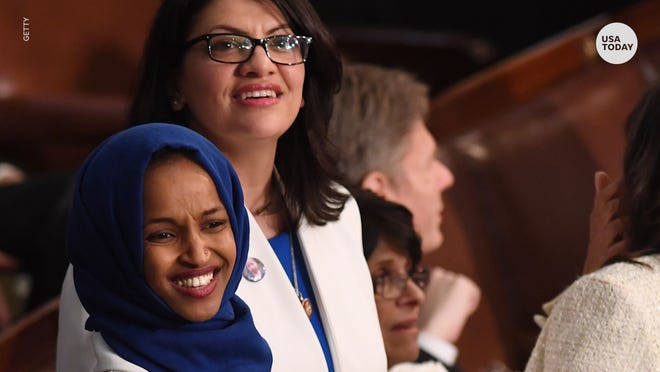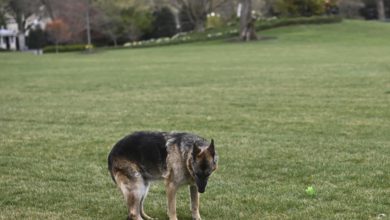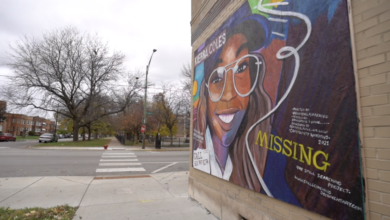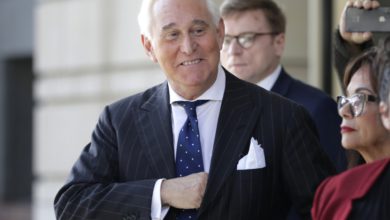
In November, Democrats won the much-coveted trifecta – the House, the Senate and the White House. But the results could easily have been different. Only 90,000 votes separated us from four more years of attacks on our people and our democracy.
Many in the establishment would justify this razor-thin margin as a reason to avoid bold reforms or hew closer to the political center. That is a dangerous narrative.
If the Democratic Party is going to succeed in moving this country forward, we need to build the power necessary to govern for a generation, not just win a single election.
How do we do this? By talking to people and by listening. We call this deep canvassing.
When most candidates bother to canvass at all, they employ consultants in Washington to develop a single, poll-tested message. Their canvassers regurgitate a set of talking points scraped together from focus groups and abstract ideas about the opinions of the American public.
USA TODAY's opinion newsletter: Get the best insights and analysis delivered to your inbox.
But our volunteers engage in long, difficult conversations – to learn from their fellow Americans, to listen more than they speak and to organize the unorganized.
At People’s Action, we are focusing our efforts on swing districts. The conventional wisdom of the establishment tells us that these areas are hostile to a progressive agenda, that the only Democrats who could win are Republicans in all but name.
But when we talk to people from these districts, we’ve found something different. We hear stories from moms and uncles with conflicted feelings about their country and its future.
We share experiences with grocery clerks and hair stylists who are tired of the status quo. And we find common ground with Americans who are eager for bold solutions to the crises that our country faces.
As U.S. representatives, we want to build movements in our districts and beyond to get the real change our neighbors are crying out for. We have focused our campaign energy on listening and organizing with people who are not already on board – while transforming supporters into volunteers and turning out our progressive majority at the polls.
In cities, suburbs and exurbs, we find that white and Black, Indigenous and people of color constituents unite around progressive values like universal health care and higher wages more often than Fox News and CNN would care to admit.
In the northern suburbs of Minnesota’s 5th Congressional District, we are canvassing on Medicare for All. We’re doing this to connect with people about the material issues that impact them every day. We’re not asking them to vote for us; we’re not asking them whether they like us; we’re asking them to imagine a better world – a world in which they don’t have to worry about how they’ll pay for their doctor or about losing coverage if they lose their job.
We’ve had thousands of conversations, and we’ve made attempts to talk with almost half of all eligible voters in the suburban cities of New Hope, Crystal, Robbinsdale, Brooklyn Center, Columbia Heights and Fridley.
Americans support Medicare for All
And we’ve found that support for Medicare for All cuts across geographic, racial, economic and, yes, political lines. Even the folks we talk to who say they are least likely to support a progressive candidate support Medicare for All and our efforts to discuss it with the community.
We’ve found it doesn’t matter whether they’re Democrats or Republicans, progressives or conservatives, our supporters or our detractors. They want to hear from us, and they want to share their stories.

Because every working American knows that our health care system is unfair. It’s based on luck. And winners and losers aren’t divided by political ideologies.
We've listened to thousands of voters
In Michigan, we are engaging in Deep Listening. In the first six months of the year, we’ve spent time connecting with our district: contacting thousands of undecided voters from 2020’s 13th congressional race.
We discovered that regardless of people’s political beliefs, folks are particularly enthusiastic about sharing their stories with someone willing to listen. We spoke to an overwhelming number of residents and a common theme emerged: They were having trouble making ends meet, and the government wasn’t helping them get by.
For example, we talked to Malcolm, who applied for unemployment insurance and waited eight months to receive his first payment. We spoke with Martha, who needed assistance fixing her front porch and an application for federal COVID-19 relief funds but didn’t know where to turn.
Our residents want and need elected officials who fight for their everyday needs. They need social workers who focus on advocacy and building pathways to the services our government offers.
Serving our residents and speaking to their needs doesn’t start in a conference room in Washington, D.C.; it starts on their front porches. This method of radical listening isn’t hard, but it takes work.
We need to listen to what our residents need, meet them where they are, connect them with the resources that are available and then advocate for the ones that aren’t. Our residents are more qualified than anyone else to say what they need to thrive.
It’s clear we can’t shy away from difficult conversations. We must engage with voters about the stories the right-wing media fed to them that demonize immigrants or peddle false, zero-sum trade-offs between the economy and the planet.
For too long, we've ceded the task of meaning-making to the right. We can do better, by bringing people together. We are organizing in our districts and supporting People’s Action in organizing in Republican-held swing districts across the country, all of which will be critical to Democrats to maintain our majority in 2022.
Change will not come through clever electioneering, or through timid, weak policies. It will take time and effort. It will take care and investment. We hope you will join us in our work. The future of our country depends on it.
Rep. Rashida Tlaib is a Democrat from Michigan; Rep. Ilhan Omar is a Democrat from Minnesota; and Brooke Adams is director of People’s Action Movement Politics.

Source link









